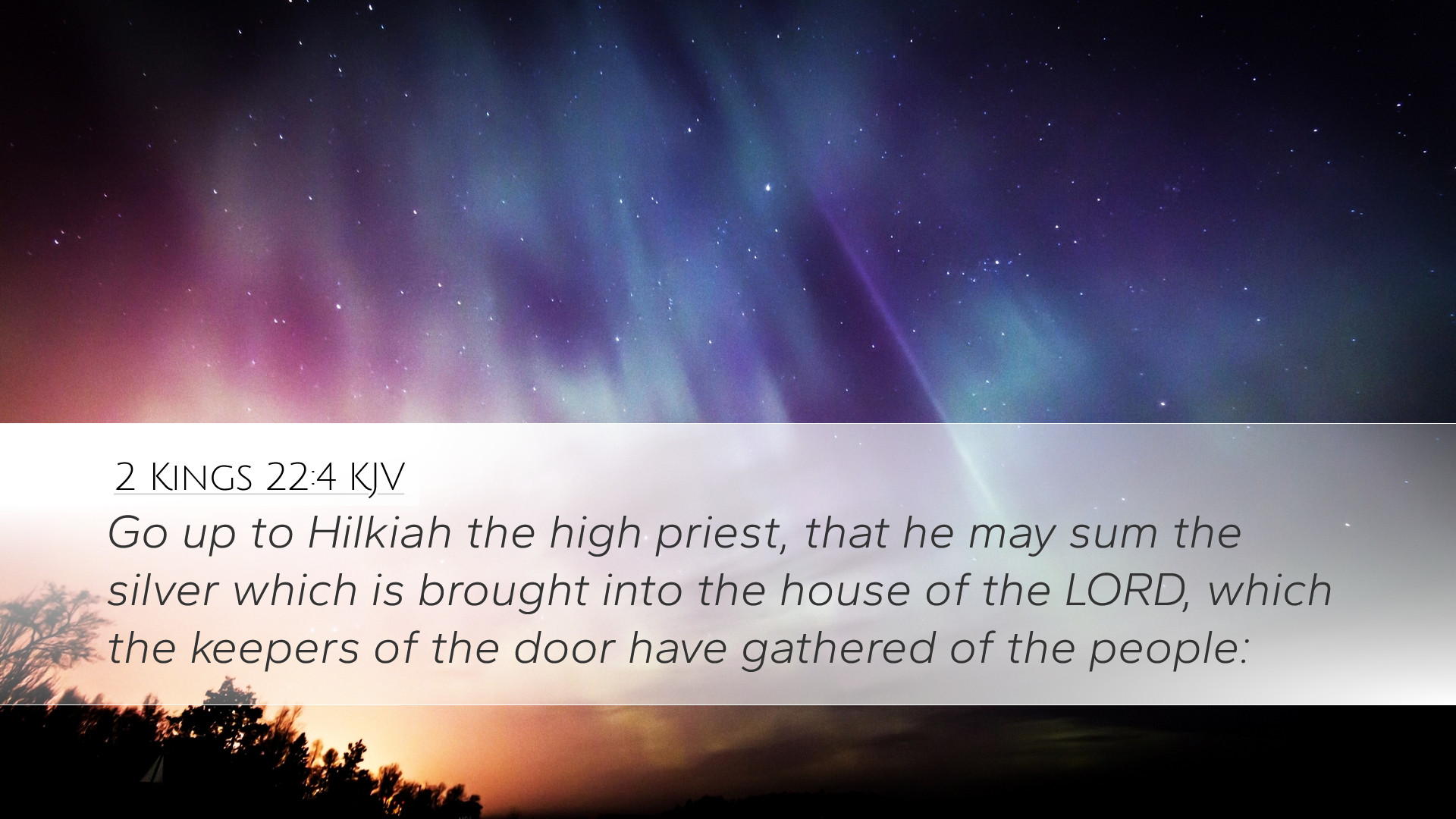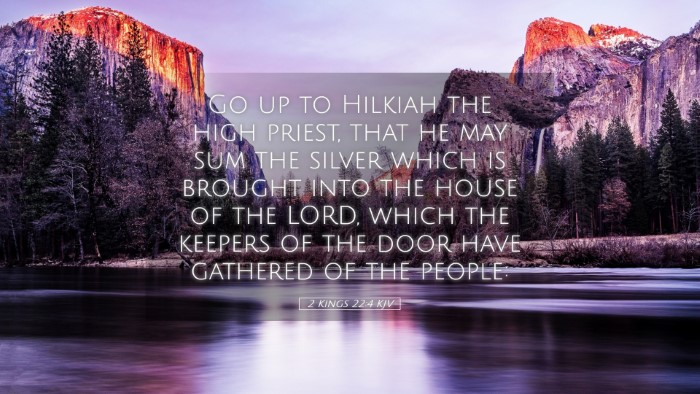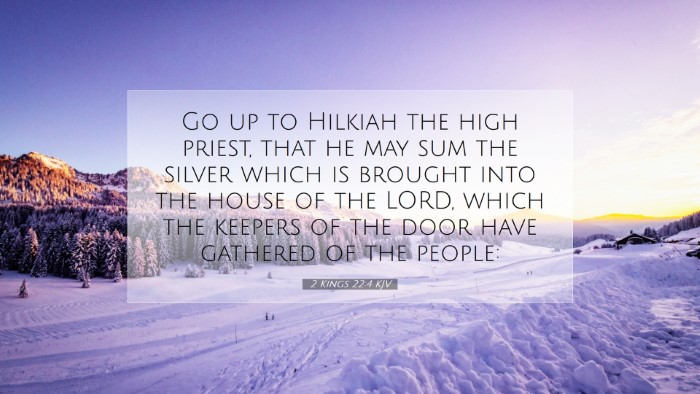Old Testament
Genesis Exodus Leviticus Numbers Deuteronomy Joshua Judges Ruth 1 Samuel 2 Samuel 1 Kings 2 Kings 1 Chronicles 2 Chronicles Ezra Nehemiah Esther Job Psalms Proverbs Ecclesiastes Song of Solomon Isaiah Jeremiah Lamentations Ezekiel Daniel Hosea Joel Amos Obadiah Jonah Micah Nahum Habakkuk Zephaniah Haggai Zechariah Malachi2 Kings 22:4
2 Kings 22:4 KJV
Go up to Hilkiah the high priest, that he may sum the silver which is brought into the house of the LORD, which the keepers of the door have gathered of the people:
2 Kings 22:4 Bible Commentary
Bible Commentary on 2 Kings 22:4
Verse Context: 2 Kings 22:4 states, "Go up to Hilkiah the high priest, that he may sum the silver which is brought into the house of the LORD, which the keepers of the door have gathered of the people."
Introduction
The verse from 2 Kings 22:4 presents a pivotal moment in the history of ancient Israel. This command to Hilkiah, the high priest, hints at a significant restoration process occurring during King Josiah's reign. It opens the narrative toward a renewal of worship and the rediscovery of the Law of Moses, making it essential for biblical scholars and theologians to delve deeper into its implications.
Historical Background
- Josiah's Reign: Josiah became king at a young age and is noted for his reforms aimed at restoring proper worship in Judah.
- Condition of the Temple: By this time, the temple had fallen into disrepair and disuse, with the worship practices being neglected.
Commentary Insights
Matthew Henry's Commentary
Henry emphasizes the importance of revenues for the maintenance of God's house. He interprets the command to sum the silver as an act of practical management but also sees it as a precursor to spiritual revitalization. He notes that restoring the temple's materials is symbolic of the need to restore true worship and adherence to God's Law.
Albert Barnes' Notes on the Bible
Barnes provides a detailed observation about the role of Hilkiah as high priest, signifying the leadership in spiritual matters within Israel. He remarks on the collection of silver as an indication of the people's willingness to contribute to the work of God, which sets the stage for the eventual rediscovery of the Book of the Law (the Torah). This act foreshadows the transformative reforms that are about to take place under Josiah's leadership.
Adam Clarke's Commentary
Clarke elaborates on the importance of transparency in managing the funds collected for the Temple. His discussion reflects on how the church today can learn from this biblical principle, advocating for accountability and the rightful use of resources gathered for divine purposes. Furthermore, he connects this verse with the larger narrative of restoration, emphasizing that proper stewardship leads to spiritual renewal.
Theological Reflections
- Stewardship: The necessity of managing resources wisely is underscored – a principle that remains relevant for modern congregations.
- Community Involvement: The gathering of the people’s contributions exemplifies the collective responsibility of the faithful in maintaining the house of the Lord.
- Spiritual Restoration: The act of summing silver aligns with the overarching theme of returning to God's covenant and establishes the foundation for Josiah's future reforms.
Practical Applications
This commentary provides several applications:
- For Pastors: Foster an environment where the church community is engaged in stewardship and restoration of church resources.
- For Theologians and Scholars: Recognize the importance of historical context and its implications for understanding contemporary church practices.
- For Students: Explore the themes of organization, responsibility, and the significance of worship in community life.
Integration with Biblical Narrative
This verse is a key transition point that leads to significant reforms in Judah and the eventual rediscovery of the Book of the Law (2 Kings 22:8). It serves not only as a historical account but as a theological marker indicating the importance of returning to the foundational texts of the faith. Understanding this moment helps to appreciate the gravity of the subsequent revival under King Josiah, as the people are called to re-engage with their spiritual heritage.
Conclusion
2 Kings 22:4 lays the groundwork for a comprehensive renovation of worship practices in ancient Israel. By recognizing the historical, theological, and practical implications of this verse, modern readers are invited to reflect on their own commitment to God's house and the importance of collective responsibility in nurturing spiritual life.


